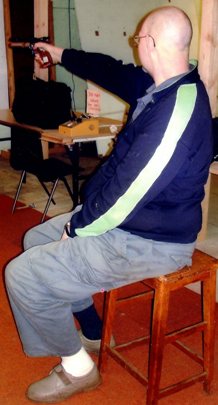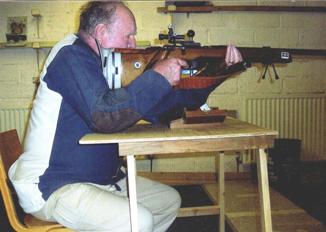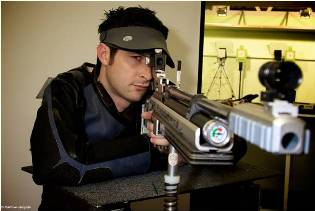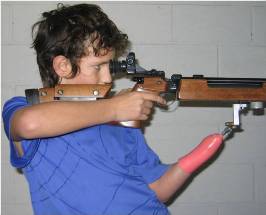Disabled Shooting
Target Shooting is the most disabled-friendly of all sports
People whose disabilities would prevent them taking part in any other sport are enjoying the challenges of target shooting.
99% of disabled or impaired shooters don’t use wheelchairs.
99% of .22 and airgun competitions are open to all, regardless of any disability or impairment.
Where other sports segregate disabled from able-bodied for competitions, in small-bore target shooting, they can all compete against each other. The DSP is working with full-bore and clay target bodies to increase the range of fully-inclusive competitions in those disciplines.
What’s Your Problem?
Vision
- Use a special lens, a sight adaptor, a filter, a ‘scope-sight or other aids. Nearly half of all shooters use some aid for aiming.
- Take up Shooting For The Blind if you cannot see through the sights at all. This uses an audio-signal through the shooter’s head-phones.
Bones, Joints, Muscles
- Use a stool or chair for standing position events.
- Use a chair and table for benchrest and prone position events.
- Use a spring stand if you can’t support a rifle or pistol.

Using a stool for air pistol

Shooting prone rifle using a table

Using a spring stand
Hearing
- Have visual signals for the essential range safety commands.
Nervous System
- Use a stand or support to hold or steady the gun.
- Use an electronic switch (remote from the gun if necessary) instead of your finger to fire it.

Shooting with Prosthesis
Missing Limb
- Shoot prone or from a chair if you have a leg problem.
- Use a special prosthesis or fitting on an arm to support a rifle or pistol.
Special Needs
- Take part in shooting if you understand the safety rules and abide by them.
Severe or Multiple Disability
- You can still shoot!
- Take part in shooting if you understand the safety rules and abide by them.
Conclusion
If for any reason you cannot shoot using standard equipment, and/or conventional positions and techniques, you can adopt any modifications that are necessary, provided they meet safety requirements. If they are approved by the national governing body (which is a simple process) you will be able to take part in most competitions.
Lots of help is available out there. The DSP can help you find a coach who has experience of working with disabled shooters, recommend people who can produce special equipment, and put you in touch with people with similar impairments or disabilities so that they can give advice and information.
For information on how to get started, Click Here to go to the DSP Website.
